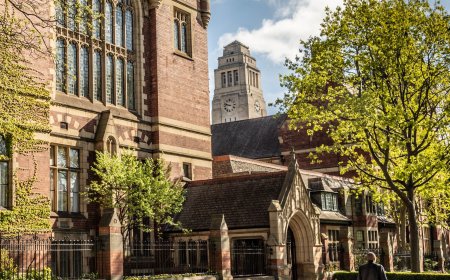Canada Visa types and Conditions

Like many countries, Canada has four (04) main visa categories, each with types of visas and conditions attached to it.
Main visa categories in Canada
A visitor Visas
This type of visa also known as a tourist visa, allows individuals to enter and temporarily stay in a country for a specific period for various purposes, primarily tourism, leisure, or visiting friends and family. Visas in this category don't allow the holder to work in the country.
Study Permits
A study permit is a type of visa that allows individuals to study or pursue an academic course in Canada for more than 6 months
Work Permits
A work permit allows foreign nationals to work in Canada temporarily.
Permanent Residence
Permanent residency (PR) in Canada is a status granted to someone who is not a Canadian citizen the right to live and work in Canada.
When considering travelling to Canada, it is important to identify in which category your visa application will fall and which type of visa you will need. Visas category and type depend on the nature of your visit, the duration, and your circumstances.
Types of visa under each category
Visitor Visa
Temporary Resident Visa (TRV)
TRV, or Temporary Resident Visa, is a document issued by the Canadian government that allows foreigners to enter Canada for a temporary period. It is also commonly known as a visitor visa.
A TRV is required for citizens of certain countries who are not visa-exempt and wish to visit Canada as tourists, for short business trips, or to visit friends and family. The purpose of the visit should be temporary, and the applicant should be able to demonstrate the intention to return to their home country after their authorized stay in Canada. Holders of this type of visa are usually not allowed to work.
Electronic Travel Authorization (eTA)
The eTA (Electronic Travel Authorization) is a requirement for visa-exempt foreign nationals who are travelling to or transiting through Canada by air. It is a digital document linked to your passport and is valid for up to 5 years or until your passport expires, whichever comes first.
It's important to note that an eTA only allows for travel to Canada by air and not by land or sea. If you plan to enter Canada through a land border or via boat, you may need to apply for a different type of visa.
It is also worth mentioning that having an approved eTA does not guarantee entry into Canada. Upon arrival in Canada, you must still meet the requirements of a border services officer.
Super Visa
A super visa in Canada is a multiple-entry visa that allows parents and grandparents of Canadian citizens or permanent residents to visit Canada for an extended period. It is valid for up to 10 years and allows the visa holder to stay in Canada for up to two years at a time without the need to renew their status. The super visa is specifically designed to provide long-term family reunification opportunities for families in Canada. To be eligible for a super visa, the applicant must meet certain requirements, including having a letter of invitation from their Canadian child or grandchild, providing proof of financial support, and undergoing a medical examination.
Temporary Resident Permit
A Temporary Resident Permit (TRP) is a document issued by Immigration, Refugees and Citizenship Canada (IRCC) that allows individuals who are inadmissible or do not meet the requirements for entry to Canada to enter the country temporarily.
A TRP is typically issued for a specific period and for a specific purpose, such as for work, study, or visiting family. It is important to note that TRPs are discretionary, and individuals must demonstrate that their visit to Canada will not pose a risk to public health or safety and that the purpose of their visit is justified.
It is important to clarify that a TRP is different from a Temporary Resident Visa (TRV), which is the common visa required for individuals from visa-required countries to enter Canada as visitors. TRVs are typically issued for shorter stays and may have different requirements and application processes.
Study Permits
There are two main types of study permits in Canada:
1. Regular study permit
This is the most common type of study permit and is issued to international students who intend to study in Canada at a designated learning institution (DLI) for a program that lasts longer than six months. The regular study permit allows students to study at any DLI and may also allow them to work part-time off-campus.
2. Study permit for shorter programs
This is a type of study permit issued to international students who plan to study in Canada at a DLI for a program that lasts six months or less. Students with this permit are not eligible to work off-campus but may be allowed to work on campus.
It's important to stress that these study permits are only authorised to study in Canada and do not give students the right to enter or stay in the country. Students may also need to obtain a visitor visa or an electronic travel authorization (eTA) to enter Canada, depending on their country of citizenship.
Work Permits
There are several types of work permits available in Canada. Some of the most common ones include:
Temporary Foreign Worker Program (TFWP) Work Permit
This work permit is for individuals who have been offered a job by a Canadian employer and need to work in Canada temporarily. It requires the employer to obtain a Labour Market Impact Assessment (LMIA) to prove that there is a need for foreign workers.
International Experience Canada (IEC) Work Permit
This work permit is for young people (between the ages of 18 and 35) from countries that have a bilateral youth mobility arrangement with Canada. It allows them to work in Canada for a limited period, typically up to one year.
NAFTA Work Permit
Under the North American Free Trade Agreement (NAFTA), United States and Mexico citizens can work in Canada in specific professional occupations without requiring a Labour Market Impact Assessment (LMIA).
Intra-Company Transfer Work Permit
This work permit is for employees of multinational companies transferring to a Canadian branch, subsidiary, or affiliate. It allows them to work in Canada for a specified period without requiring an LMIA.
Post-Graduation Work Permit
This work permit is for international students who have completed a program of study at a designated learning institution in Canada. It allows them to work in Canada after graduation for a period equal to the length of their study program, up to a maximum of three years.
Open Work Permit
An open work permit is not job-specific and allows individuals to work for any employer in Canada. It is typically issued to certain groups, such as the spouse or common-law partner of a temporary foreign worker or international student.
What's Your Reaction?




































![[GIVEAWAY] TUI Monthly Giveaway to win £500](https://emooves.com/uploads/images/202501/image_430x256_67755a00c1cb0.jpg)















